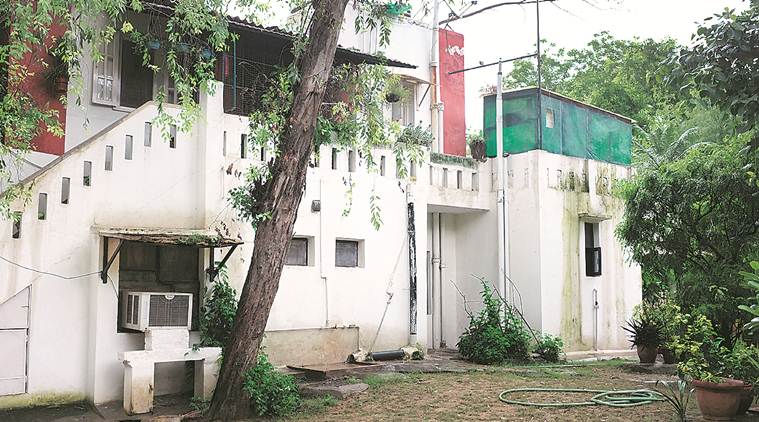Stay updated with the latest - Click here to follow us on Instagram
Sainik Farms, Mahendru Enclave: ‘Affluent’ but unauthorised, these colonies await clarity
The 1,728 unauthorised colonies in Delhi cleared for regularisation by the central government in October do not include 69 neighbourhoods categorised as affluent colonies, along with colonies in forest or protected areas.
 A farmhouse in Sainik Farms. Sainik Farms has been termed an affluent colony. (Photo: Express Archive)
A farmhouse in Sainik Farms. Sainik Farms has been termed an affluent colony. (Photo: Express Archive)
For several of Delhi’s “affluent” unauthorised colonies, the last two months have entailed hoping and waiting for a change in their status, even as they question the grounds on which they have been identified as such.
The 1,728 unauthorised colonies in Delhi cleared for regularisation by the central government in October do not include 69 neighbourhoods categorised as affluent colonies, along with colonies in forest or protected areas.
The principle for what qualifies as an unauthorised colony inhabited by affluent persons had been defined in the 2006 report of K K Mathur Committee of Experts. According to it, these are unauthorised colonies “where more than 50% of the plots are of the size of 350 square metres or above”.
At the time that the committee had formed its report, only Sainik Farms, Mahendru Enclave and Anant Ram Dairy had been recognised as “affluent” colonies. Several of the localities included in the list now question the tag attached to them, as do residents of Anant Ram Dairy.
However, nothing much has changed since the list of colonies to be regularised was released two months ago.
At Freedom Fighters Enclave in Neb Sarai, residents claim that no building is on a plot larger than 167 square metres, and that 50% of the homes are less than half that size, with most of the 1,000 resident families living in flats.
“Including our colony makes it appear that there is no objective criteria to determine these affluent colonies. After the 1980s, this is the first time that there seems to be movement towards regularisation of colonies and there is a fear that if we are left out now, it will never happen for us,” said Prem Deep, president of the area’s residents’ association.
He said that the association approached the DDA for reconsidering their status but were told that a go-ahead from the ministry would be required for a re-survey, which has not been received yet.
According to him, in the 10 years that he has been the association president, there has been no survey by any agency to identify the size of houses in it.
The same is echoed by Rajinder Sejwal, president of the association at Chattarpur Enclave. However, Sejwal is still confident that the list will have to be revised.
“Once they actually study the layouts of the colonies and look at the actual sizes of houses, barely 10 of the classified colonies will remain on the list,” he said.







